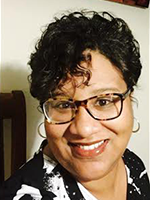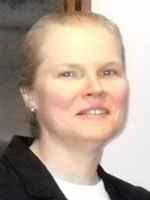Office of Education


- Yvette R. Pittman, PhD, Director, Office of Education
- Carol Carnahan, Program Coordinator
The Office of Education, Division of Intramural Research, NICHD, was established in 2004 to support the needs of intramural trainees at all levels. We offer academic support programs, career counseling, and individualized opportunities to a population averaging 250 trainees, including postdoctoral, visiting, and research fellows; clinical fellows and medical students; graduate students; and postbaccalaureate fellows.
Goals and objectives
To meet the training needs of intramural scientists, fellows, and students at all levels, the Office of Education recruits and develops academic support programs; contributes to mentoring, evaluation, and career guidance; and creates of new training initiatives. Our professional development workshops focus on various topics, including public speaking, job interviewing, leadership and management, and scientific writing and publishing. Additional areas of involvement include programming for career exploration, networking among fellows and alumni, grantsmanship, and the enhancement of fellows’ competitiveness for research awards, as well as support of new tenure-track investigators.
Notable accomplishments of the past year
The office developed and manages an online Annual Progress Review for fellows, launched in 2016, to track scientific and career development and progress. As part of investigators' assessments of mentoring, the fellows’ reports are also provided for the BSC site visits. The database of NICHD alumni from 2008 to the present continues to be updated, and we compiled a valuable list of organizations that accept grant applications from NIH intramural fellows, through both NIH and non-NIH funding mechanisms. Twenty-nine NICHD fellows were recipients of the 2018 FARE (Fellows Award for Research Excellence) awards. In addition to the Fellows Intramural Grants Supplement (FIGS) continuing to recognize and stimulate grant applications among fellows, we launched a new competitive internal funding opportunity for NICHD postdoctoral and clinical fellows: our Intramural Research Fellowships (IRFs). Its ultimate goal is to promote grant writing and enhance fellows’ awareness of various components for an NIH grant.
For our annual three-minute talk (TmT) training and awards program, we once again partnered with NHGRI and NIDCR; TmT emphasizes the importance to scientists of communicating their research and its significance to improving human health. TmT participants completed several oral presentation workshops, received one-on-one professional coaching, and were judged by internal and external panels. Dr. Arup Chakraborty in the laboratory of Dr. Melvin DePamphilis received the third-place award. The Office of Education continued our Graduate Student Talks initiative, established in 2014; it provides the Institute’s graduate students with experience in presenting their thesis research to a non-specialist scientific audience.
We established a new research ethics training plan for intramural fellows, providing eight hours of training within a fellow’s initial two years, in fulfillment of Responsible Conduct of Research requirements. The Institute also established an exchange program with INSERM (the Institut National de la Santé et de la Recherche Médicale) in France, which provides a unique opportunity for U.S. and French scientists to obtain postdoctoral training with French and U.S. mentors, respectively. The Fellows Recruitment Incentive Award (FRIA) continues to support investigators who recruit postdocs from populations traditionally under-represented in science. This year, the award was given to Dr. Mark Stopfer, who recruited Dr. Alejandra Boronat Garcia. The alumni of our NICHD Scholars program, in its seventh year, has expanded to ten individuals; our two new alumni started medical school at the University of Kansas and University of North Carolina at Chapel Hill, two graduated from medical school and one from an MD/PhD program in May 2017, and two new scholars joined the program. The Scholars program focuses on “developing talent” and supporting trainees’ academic and career progression. We offered a three-week summer training course for college teaching and curriculum development associated with University of Maryland. Postdoctoral fellows were also given the opportunity to organize and teach our annual course for postbaccalaureate trainees, which entered its twelfth year. The Office of Education is fully committed and actively involved in graduate and professional school advising and career counseling for all of our fellows. The 13th annual meeting of fellows took place at the Smithsonian Museum of the American Indian and featured keynote speakers Dr. Peter Agre, 2003 Nobel Laureate in Chemistry, and Dr. Adam Ruben, who shared his perspective on science careers using comedy. Each spring, this retreat includes presentations by fellows and a poster presentation by each attendee and is held for about 100 people to address scientific developments and careers. The program is developed and run by a fellows’ steering committee. In September 2017, the Division of Intramural Research gave its tenth Mentor of the Year awards to Tamás Balla, MD, PhD (investigator) and Amber Stratman, PhD (fellow). Lastly, The NICHD Connection monthly newsletter continues its focus on mentoring, careers, and academic programs for young scientists, publishing its 90th issue in December 2017 and reaching all members of the intramural division and alumni.
Contact
For further information, contact Dr. Yvette Pittman or Carol Carnahan.


